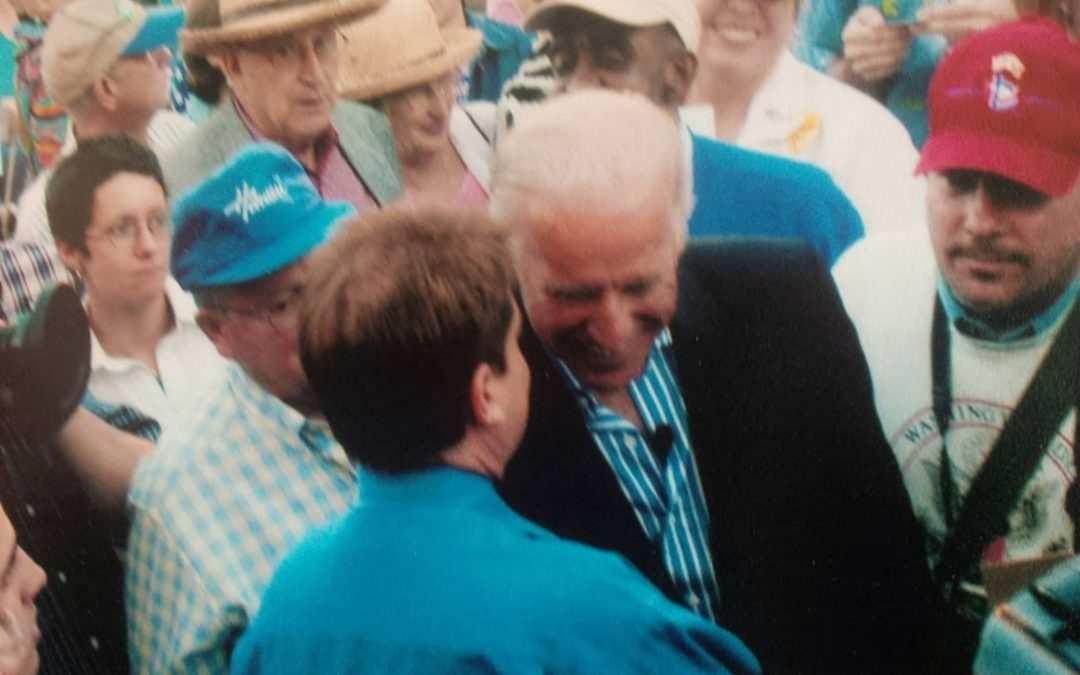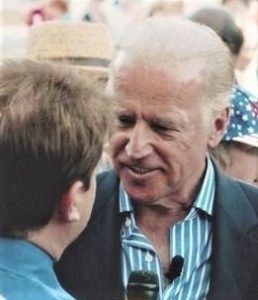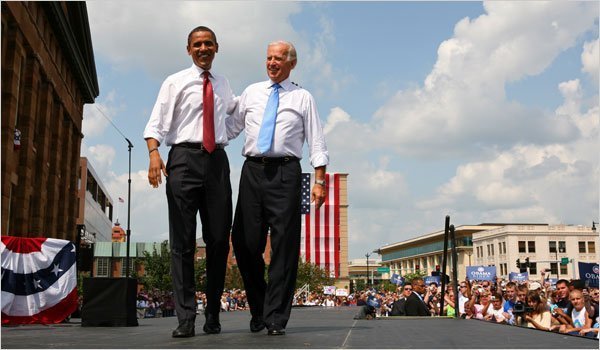If you’ve followed politics you’ve probably heard of the “stump speech.” The phrase originated back in 1876 when Democratic candidates would stand on tree stumps to give speeches at Galivants Ferry, South Carolina.
For over 130 years the biannual event had been happening in western Horry County, also home to the ever-growing Myrtle Beach where I happened to be anchoring the 6 and 11 pm news each weeknight.
I also went out and covered everything political. And there is a lot to cover in South Carolina during presidential election years.
The 2006 Galivants Ferry event featured Sen. Joe Biden (D-DE), speaking from the back porch of an old general store.
Biden, a good public speaker with a dramatic life story (his wife and one-year-old daughter were killed in a car accident just weeks after his first election to the Senate), had sought the Democratic presidential nomination in 1988.
For a time in 1987 he was considered a frontrunner.
That is until the Michael Dukakis campaign leaked to the press videotapes showing him plagiarizing speeches of British labor leader Neil Kinnock.
When it also was discovered Biden had plagiarized some of his law school papers, his campaign quickly folded.
Nearly twenty years had passed since that debacle, and Biden was eyeing the 2008 race closely.
From the start, it was clear he would be outmatched in fundraising by Senator Hillary Clinton, Senator Barack Obama, and Senator John Edwards.
“Smiling Joe,” as local Democrats called him, was popular with the grassroots but not many considered him to be on the upper-tier of candidates.
That week, gas prices were hovering around a historically high $3.00 a gallon in many parts of the country.
As the Bush administration got hammered by Americans looking to fix blame, many Democrats were timid to blame the Big Oil companies.
That fascinated me because rarely is an industry so big that it intimidates both major political parties.
I wanted Biden’s perspective on that but was told by his senate staff that he would not be taking any press questions.
No press questions?
At the famous Galivants Ferry stump?
That was not acceptable to me, so I told our news photographer to tuck in behind as we pushed our way to Biden, parting a sea of Democratic activists along the way.
A C-SPAN cameraman whispered to me as I approached Biden in the middle of the crowd whether it would be okay to air my questions on their cable network later that night.
“Of course,” I said as I reached Biden and leaned in and asked him, “talk to me quickly about Big Oil. Why haven’t Democrats been more vocal taking on the monopoly of Big Oil?”
Biden didn’t seem fazed, smiled, and offered a brutally honest assessment: “The truth is, it’s hard to get traction.”
That about summed up the reality of how big money works in Washington.
During the Bush-Cheney years—both former oil executives by the way—the oil and gas industry spent $393.2 million on lobbying the Federal Government according to the non-partisan Center for Responsive Politics.
Just a staggering number.
To challenge the oil and gas industry is too tough and not worth the effort for most politicians—and that goes whether you are a Republican or Democrat.
But Biden had tried, asking energy industry executives during a senate hearing whether any of them still thought they needed $2.8 billion in taxpayer subsidies while they were reaping record profits.
No one responded.
“I’m the guy that got the Big Oil companies to agree that they didn’t need the tax break the energy bill gave them,” Biden told me. “I made them agree to repeal it, the chairman of the board of ExxonMobil (Rex Tillerson). I went to the floor of the United States Senate and Republicans wouldn’t even let me get a vote on it. So you have to have a forum, and that’s why it’s important this year we win back either the House or the Senate.”
“Are consumers angry enough about gas prices to fuel Democratic chances in the fall?” I asked.
“I think so, but they’re still looking for us to step up to the plate. They’ve given up on the other team and they want to know whether we’re ready for prime time…”
“Are you ready for prime time?” I interrupted.
“We are ready for prime time. We are ready,” he replied.
WATCH:
The voters agreed, and in November, a majority of Democrats were elected to majorities in both the House and Senate.
As we stood there in mid-2006, the last question I had for Biden was whether he was ready for another national campaign, especially with polls showing him back in the pack.
“Look, there’s nothing I can do about any other candidate in the race. I can just be the best Biden I can be. The problem is everyone knows who I am and I’m not changing. If I lose I’ll lose on my own terms and say what I think. And I think the American people are where I am. If I’m wrong I’ll get a pension, if I’m right I get a shot to run.”
Biden officially entered the race months later and the voters barely noticed him.
But at least one fellow Democrat thought he was the best Biden he could be.
Standing there interviewing him at the Galivants Ferry stump, I would have never guessed Joseph Robinette Biden, Junior would be the next vice president of the United States.


